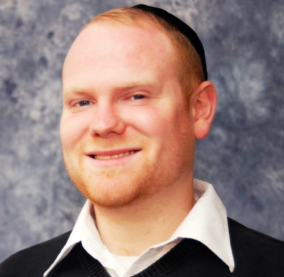What Their Words and Actions Reveal About Their True Stance
As the 2025 Canadian federal election (on Monday April 28) approaches, voters need to understand where each party leader stands on Israel. With antisemitism on the rise and growing tension in the Middle East, it’s important to know how leaders view Israel and the issues surrounding it. This breakdown looks at the public positions of Canada’s major party leaders — their statements, policies, and actions — and highlights contradictions, especially when it comes to their stance on “Palestinian rights” and human rights violations. This article does not endorse any candidates or take a position on the merits of their economic or social policies. It focuses solely on their statements and actions regarding antisemitism and Israel.
Pierre Poilievre – Conservative Party Leader

Strong Support for Israel: Poilievre has always supported Israel’s right to defend itself against terrorism. He has promised to stand up against anti-Israel resolutions at the United Nations and cut funding to organizations like UNRWA that promote hatred or antisemitism.
Tackling Antisemitism: Poilievre has made it clear that antisemitic comments, especially in Canadian universities, should not be tolerated. He has said he would cut funding to institutions that allow hate speech under the guise of activism.
Real Commitment: Poilievre’s personal connection to Israel, through his visits and experiences, shows his strong and consistent support for the country.
Mark Carney – Liberal Party Leader

Criticism of Israel’s Actions: Carney has criticized Israel’s military actions in Gaza. His calls for a ceasefire often ignore Israel’s security concerns and the threat posed by Hamas.
Hypocrisy on Human Rights: Carney’s stance on Syria is deeply troubling. Following the fall of Assad’s regime, a new Radical Islamic government has taken power in Syria. Despite reports of widespread atrocities, including massacres of religious minorities such as Christians and Alawites, Carney has remained largely silent on these human rights violations. Worse, he has called for the removal of some sanctions against this new regime, even though it continues to oppress and persecute minority groups. His failure to address these ongoing atrocities, while continuing to criticize Israel’s defensive actions, exposes a troubling inconsistency in his approach to global human rights.
Lack of Action on Antisemitism: Carney has not been vocal in condemning the rising antisemitism in Canada. His criticism of Israel often overshadows the need to address the increasing attacks on Jewish communities within the country.
Yves-François Blanchet – Bloc Québécois Leader

Largely Silent on Israel: Blanchet rarely comments on foreign affairs, and when he does, his statements lean toward generic “human rights” platitudes.
Passive Tolerance for Anti-Israel Rhetoric: While not openly hostile, his silence amid the rise of antisemitic protests and hate speech suggests a troubling indifference.
Jagmeet Singh – New Democratic Party Leader

One-Sided Criticism of Israel: Singh consistently criticizes Israel’s military actions, often ignoring the role of Hamas in the violence. He is quick to condemn Israel but fails to offer a fair and balanced perspective, which undermines any genuine human rights advocacy.
Selective Approach to Human Rights: Singh is outspoken in defending Palestinian rights and frequently criticizes Israel, often without acknowledging the role of Hamas or the complexities of the conflict. At the same time, he has said little about the persecution of Christians, Alawites, and other minorities under Syria’s new Sunni-led government, raising serious questions about the consistency of his human rights advocacy.
Supports Arms Embargo on Israel: Singh has called for a suspension of arms sales to Israel — a significant policy position that singles out the region’s only democracy, while making no comparable call for sanctions or embargoes on terror-affiliated regimes or countries with some of the world’s worse human rights records.
Defends Anti-Israel Protests: Jagmeet Singh has openly backed anti-Israel campus protests, despite their frequent displays of antisemitic hate, harassment of Jewish students, and chants calling for Israel’s destruction. By cloaking his support in vague appeals to free speech while refusing to denounce the blatant antisemitism on display, Singh comes off as willfully blind — or worse, complicit — in normalizing hate and intimidation under the guise of activism.
Diluted Response to Antisemitism: Singh has spoken against antisemitism in broad terms, but typically in statements lumped together with other forms of hate. This tendency to generalize downplays the unique and rising threats faced by Jewish communities in Canada and abroad.
Elizabeth May – Green Party Leader

One-Sided Criticism of Israel: May has been consistent in her condemnation of Israeli military actions and regularly focuses on Palestinian suffering. However, she has remained silent on the ethnic and religious persecution happening under Syria’s new leadership. This selective outrage suggests a narrow, politically convenient approach to human rights.
Supports Arms Embargo on Israel: The Green Party, under May’s leadership, has officially called for an arms embargo on Israel — a harsh and disproportionate measure given Israel’s democratic governance and ongoing security threats. Notably, no similar policy has been proposed for regimes committing widespread atrocities across the region.
Promotes Anti-Israel Activism: May has actively supported and participated in protests and campaigns that are not just critical of Israel, but often openly hostile to its existence. Many of these demonstrations have included extremist rhetoric, glorification of terrorist groups, and blatant antisemitism. By standing with these movements and failing to clearly denounce the hate they often promote, May helps legitimize a toxic environment where anti-Israel sentiment crosses the line into outright antisemitism — and where Jewish Canadians are increasingly targeted and marginalized.
Generic Condemnation of Hate: While she does condemn hate, May rarely singles out antisemitism as a distinct and growing threat. This reluctance weakens the urgency of her message and leaves Jewish Canadians feeling overlooked.
Maxime Bernier – People’s Party of Canada Leader

Bernier has emphasized a “Canada First” approach, stating that Canada should avoid involvement in foreign conflicts unless there is a compelling strategic interest. He has expressed a desire to keep Canada out of the Israel-Hamas conflict and has discouraged Canadians from participating in it.
Criticism of Domestic Protests: He has condemned pro-Hamas demonstrations in Canada, particularly those celebrating violence, and has called for a focus on Canadian issues rather than foreign conflicts

Nosson Shulman is a journalist and Licensed Tour Guide in Israel specializing in Biblical tours. To allow tourists to experience Israel during the Corona era, he created the new hit Israel tour video series which brings Israel to the home of viewers by simulating actual tours. To check out his free sneak preview tour videos, click here. To view sample tour itineraries or to inquire about private tour opportunities with a personalized itinerary on your next trip to Israel, click here.

*The views expressed in this article are those of the author and do not necessarily reflect the views of Israel365 News





